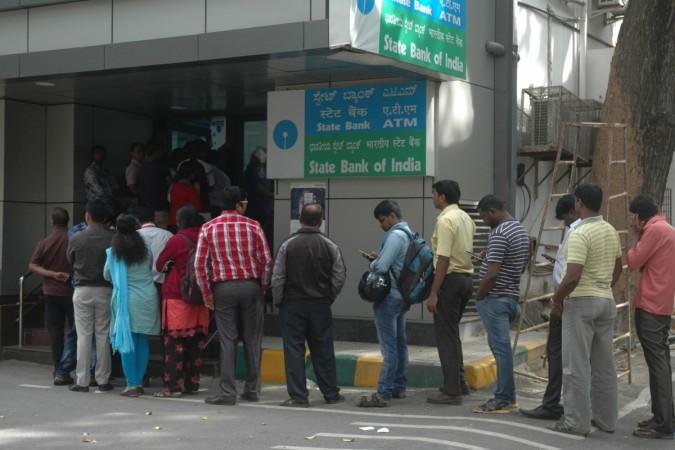
December 21 is probably a happy day for many Indians reeling under the onslaught of demonetisation since November 8. The Reserve Bank of India (RBI) withdrew a rule that was seen as crippling many honest bank account-holders and now the Narendra Modi government has taken a new step to encourage digital payment of wages to workers.
The government's move also needs to be seen in the context of problems faced by people when they were not able to withdraw their November salaries in view of the cash crunch at ATMs, triggering anger and frustration.
It seems the government does not want to take chances this month and has therefore passed an ordinance amending provisions of a key legislation to enable employers to switch from cash to digital for disbursing salaries.
The India Today reports that amendments to the Payment of Wages Act may include enabling clauses that would allow employers to pay wages in cheque also, in addition to cash. The move to encourage payment of wages in digital mode was given the go-ahead at the Union Cabinet meeting on Wednesday, the publication added.
Section 6 of the Payment of Wages Act contains provisions pertaining to wages and mode of disbursement.
"All wages shall be paid in current coin or currency notes or in both: [Provided that the employer may, after obtaining the written authorisation of the employed person, pay him the wages either by cheque or by crediting the wages in his bank account.]"
The benefit of paying wages in modes other than cash will also ensure transparency besides bringing more workers under social security schemes such as provident fund.
If the move indeed takes off, workers would be able to herald a less-stressful 2017 presuming that the cash availability would have improved substantially by that time.
On Tuesday, the government also announced concessions for small traders in the form of less tax implication in case they opt for digital transactions.
Under the provisions of the Income Tax Act, if a trader does his transactions in cash on a turnover of Rs 2 crore, then his income under the presumptive scheme will then be presumed to be Rs 16 lakh @ eight percent of the turnover. After availing of Rs 1.5 lakh deduction under Section 80C, his total tax liability will be Rs 267,800.
The government made amendments to the above provision to nudge the traders to embrace cashless transactions by announcing some concessions.
"If he (the small trader) shifts to 100 percent digital transactions under the new announcement made, his profit will be presumed to be at Rs 12 lakh @ 6 percent of turnover, and after availing of Rs 1.5 lakh under Section 80C, his tax liability now will be only Rs 144,200," the official announcement said.

















